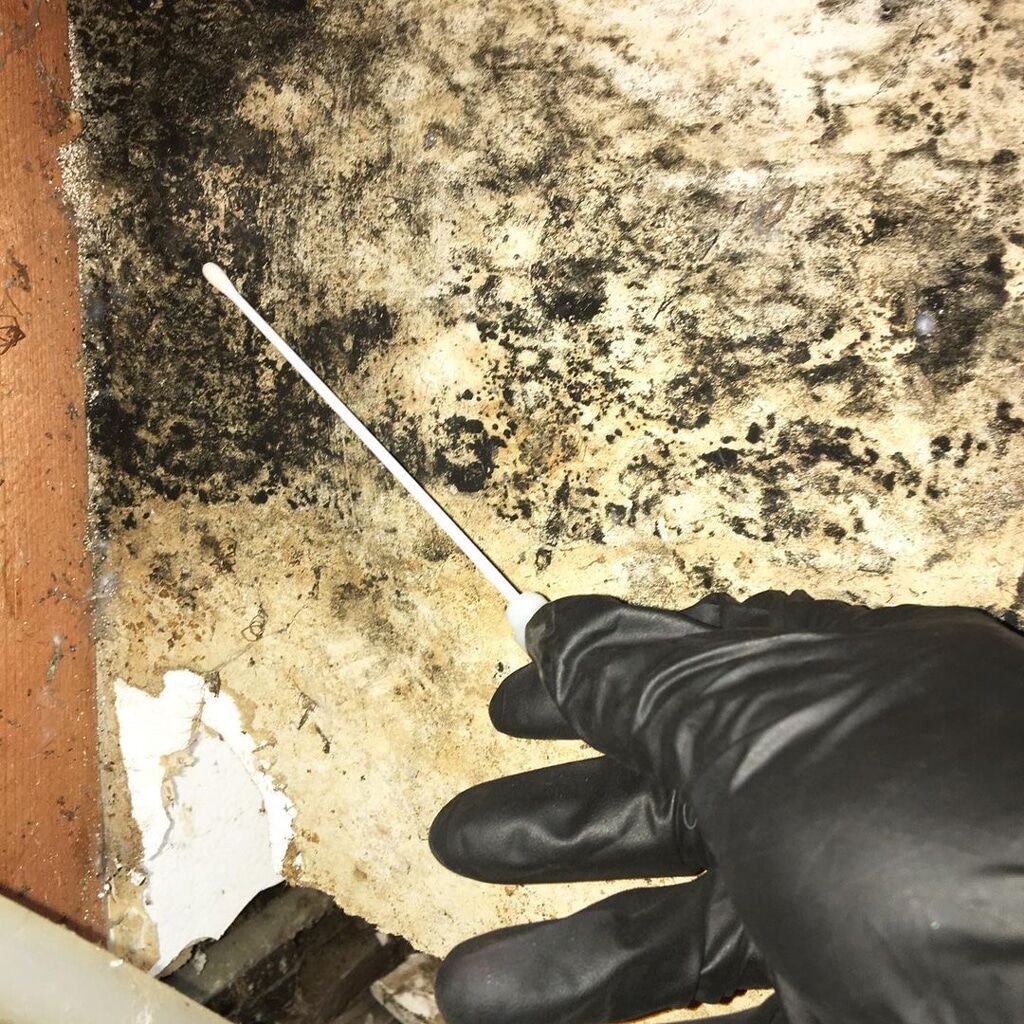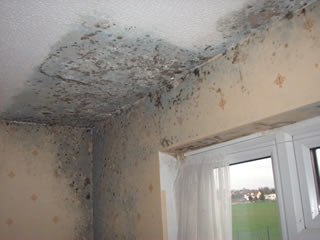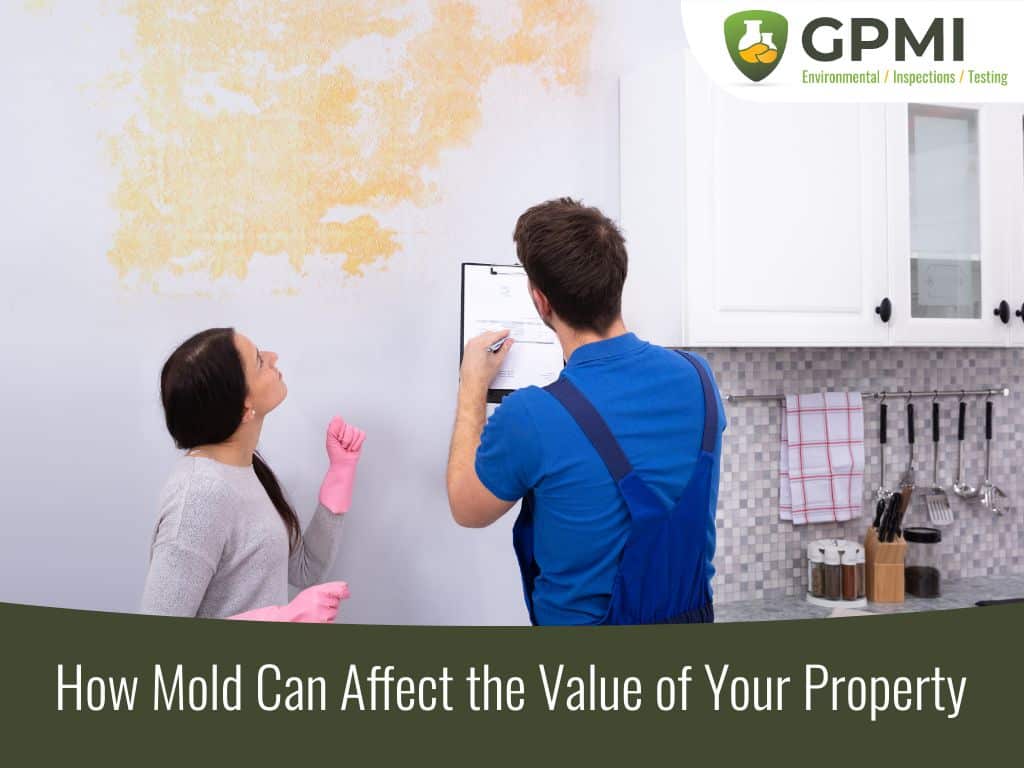Mold is a persistent issue that can not only compromise the structural integrity of your home but also impact its overall value. In this article, we will explore the effects of mold remediation on your home’s value and delve into the importance of addressing this problem promptly. Whether you are a homeowner looking to sell or simply interested in understanding the potential consequences of mold, this article will provide you with valuable insights and guidance. Discover how tackling mold can safeguard your investment and ensure a healthy living environment for you and your family.

Overview of Mold Remediation
Mold can be a persistent and concerning issue in homes, and its growth can have significant implications for both the health of the occupants and the value of the property. Mold remediation refers to the process of identifying, eliminating, and preventing mold growth in a home. This comprehensive article will explore the causes of mold growth in homes, the health risks associated with mold, the importance of mold remediation, the factors affecting home value, the impact of mold remediation on home value, the positive and negative effects of mold remediation, the home inspection and appraisal process, the role of mold disclosure, and tips for effective mold remediation.
Causes of Mold Growth in Homes
There are several factors that contribute to the growth of mold in homes. The primary cause is excessive moisture, which can be the result of water leaks, high humidity levels, or poor ventilation. Areas in a home that are prone to moisture accumulation, such as basements, bathrooms, and kitchens, are particularly susceptible to mold growth. Additionally, any prior water damage or flooding in a home can create conducive conditions for mold to thrive.

Health Risks Associated with Mold
Mold can have detrimental effects on human health, particularly for individuals with allergies, compromised immune systems, or respiratory conditions. Exposure to mold spores can lead to symptoms such as nasal congestion, coughing, wheezing, eye irritation, skin rashes, and throat irritation. Prolonged exposure to mold can also contribute to the development of more severe health issues, including asthma and fungal infections. It is essential to prioritize mold remediation to minimize the health risks associated with mold exposure.
Importance of Mold Remediation
Mold remediation is crucial for maintaining a safe and healthy living environment. By promptly addressing mold growth and implementing effective remediation measures, homeowners can prevent further damage to their property, protect the health of occupants, and preserve the value of their homes. Ignoring or neglecting mold growth can lead to extensive property damage, costly repairs, increased health risks, and decreased property value.

Factors Affecting Home Value
Several factors influence the value of a home, and understanding these factors is vital when considering the impact of mold remediation on home value.
Location
Location plays a significant role in determining the value of a property. Factors such as the neighborhood, proximity to amenities, and school districts can greatly influence a home’s value. Properties located in desirable areas are more likely to maintain or increase in value, even with the presence of mold, as buyers may see the potential in investing and remediating the issue.
Age and Condition of the Property
The age and condition of a property can also affect its value. Older homes may be more prone to mold growth due to factors such as deteriorating infrastructure, outdated ventilation systems, or past water damage. However, if a property has undergone proper maintenance and regular updates, its value may be less impacted by mold remediation.
Market Demand
The demand for homes in a specific area or market can significantly impact their value. In a competitive real estate market, buyers may be more willing to overlook mold issues if there is limited inventory or high demand in the area. Conversely, in a buyer’s market, homeowners may need to prioritize mold remediation to make their property stand out from the competition.
Comparable Sales in the Neighborhood
The value of a home can also be influenced by recent sales of similar properties in the neighborhood. If other homes in the area have undergone successful mold remediation and sold for favorable prices, it may indicate that mold remediation can positively impact home value.
Impact of Mold Remediation on Home Value
The impact of mold remediation on home value can vary depending on various factors. It is essential to consider both the positive and negative effects of mold remediation when assessing its influence on a property’s value.
Positive Effects
Mold remediation can have several positive effects on home value, including:
Improved Indoor Air Quality
By eliminating mold growth and addressing underlying moisture issues, mold remediation significantly improves indoor air quality. Clean and healthy air is a crucial factor for homeowners, and properties with good indoor air quality are generally more desirable and valuable.
Prevention of Further Damage
Mold growth can cause significant damage to a home if left untreated. Mold eats away at organic materials, such as wood and drywall, leading to deterioration and structural issues. By promptly addressing mold growth through remediation, homeowners can prevent further damage and potential costly repairs.
Reduced Health Risks
Mold exposure can have adverse health effects on occupants. By eliminating mold and minimizing the presence of mold spores, mold remediation reduces the risk of respiratory issues, allergies, and other health problems. This can enhance the overall desirability and value of a home.
Enhanced Aesthetic Appeal
Mold growth can be unsightly and may give the impression of poor maintenance and neglect. By eliminating mold and improving the overall cleanliness and appearance of a property, mold remediation can enhance its aesthetic appeal, making it more appealing to potential buyers and increasing its value.
Negative Effects of Mold Remediation
While mold remediation can have many benefits, it can also present some challenges and potential negative effects on home value.
Additional Expenses
Mold remediation can involve significant costs, depending on the extent of the mold growth and the necessary repairs and renovations. This additional financial burden may affect the overall value of a property, especially if the remediation costs are not reflected in the selling price.
Perceived Stigma
Some home buyers may be reluctant to purchase a property that has a history of mold issues, even if the mold has been successfully remediated. The perception of mold stigma can affect a property’s marketability and potentially impact its value. However, effective communication, documentation, and disclosure of the mold remediation process can help alleviate concerns and mitigate any perceived stigma.

Home Inspection and Appraisal Process
The home inspection and appraisal process is a crucial step in determining a property’s value and identifying any issues that may affect it, including mold.
Role of Home Inspection
During a home inspection, a qualified professional assesses the condition of the property and identifies any structural, mechanical, or health-related issues. Inspectors will often check for visible signs of mold, assess the extent of any mold growth, and evaluate the effectiveness of any previous remediation efforts. The findings of a home inspection can impact a property’s value and may influence the course of any necessary mold remediation.
Appraisal Value Determination
A home appraisal is an independent assessment of a property’s value carried out by a licensed appraiser. While appraisers primarily focus on factors such as location, comparable sales, and property condition, they may also consider the presence of mold and its impact on the property’s value. A thorough and successful mold remediation can have a positive influence on the appraised value of a home.
The Role of Mold Disclosure
Disclosing mold issues is an important aspect of selling a property, and failing to disclose can have legal and financial consequences.
Legal Requirements for Mold Disclosure
Mold disclosure laws vary by jurisdiction, but in many areas, sellers are legally obligated to disclose any known mold issues to potential buyers. This disclosure may need to be made in writing and should include relevant information about past or present mold growth, remediation efforts, and any ongoing moisture issues.
Effects of Non-disclosure
Failure to disclose mold issues can result in legal disputes, financial penalties, and damage to the seller’s reputation. Buyers who discover undisclosed mold problems may pursue legal action or seek compensation for damages, potentially leading to a decrease in the property’s value and a lengthier selling process.

Tips for Effective Mold Remediation
To ensure effective mold remediation, homeowners should consider the following tips:
Hiring Professional Mold Remediation Services
While DIY mold removal may seem tempting, it is generally recommended to hire professional mold remediation services. Certified mold remediation professionals have the necessary knowledge, experience, and equipment to properly assess the extent of the mold growth, eliminate it effectively, and prevent future recurrence.
Identifying and Fixing the Source of Moisture
Addressing the underlying cause of mold growth is crucial for successful remediation. Homeowners should identify and fix any sources of excess moisture, such as leaks, inadequate ventilation, or high humidity levels. By eliminating the source of moisture, homeowners can prevent future mold growth and ensure long-term mold prevention.
Proper Cleanup and Disposal Techniques
During the mold remediation process, it is essential to follow proper cleanup and disposal techniques to ensure the safe removal and disposal of mold-contaminated materials. This will prevent cross-contamination and the spread of mold spores throughout the property.
Conclusion
Mold growth in homes can have significant implications for both the health of occupants and the value of the property. Mold remediation is a vital process for eliminating mold, improving indoor air quality, preventing further damage, and reducing health risks. While mold remediation may involve additional expenses, it can enhance a property’s value by addressing moisture issues, enhancing aesthetic appeal, and improving overall desirability. Effective mold remediation, proper disclosure, and adherence to legal requirements are essential for maintaining trust, protecting property value, and ensuring a successful selling process. By understanding the causes of mold, the health risks associated with it, the factors affecting home value, and the tips for effective remediation, homeowners can make informed decisions and take the necessary steps to address mold issues promptly and effectively.